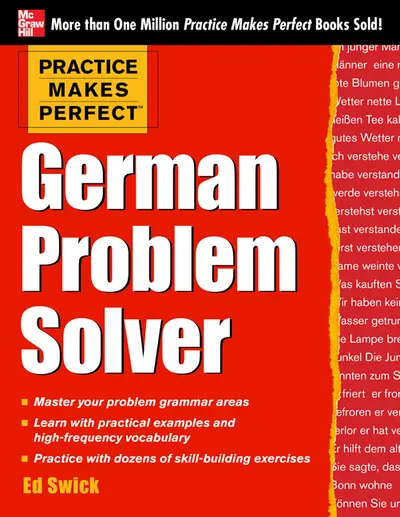My Account Details

ISBN10: 0071791159 | ISBN13: 9780071791151

2. Haben, Sein, and Werden
3. Declensions with Ein-words and Der-words
4. Pronoun Choice by Gender
5. Special Masculine Nouns
6. Conjunctions and Word Order
7. Mancher and Solcher
8. Comparatives , Superlatives, and Irregularities
9. Modals and Double Infinitives
10. Sehen, Hören, Lassen, Helfen, and Double Infinitives
11. Prefixes
12. Irregular Imperatives
13. Verbs with Specific Prepositions
14. Categories of Irregular Verbs
15. Passive Voice vs. Participles as Adjectives
16. Subjunctive Mood
17. Numbers and Numerals
18. Infinitive Clauses
19. Relative Clauses
20. Writing
Need support? We're here to help - Get real-world support and resources every step of the way.